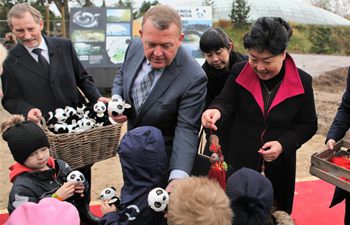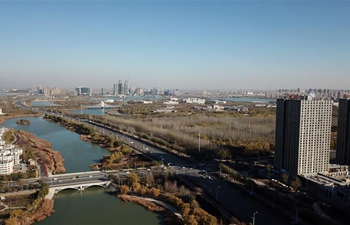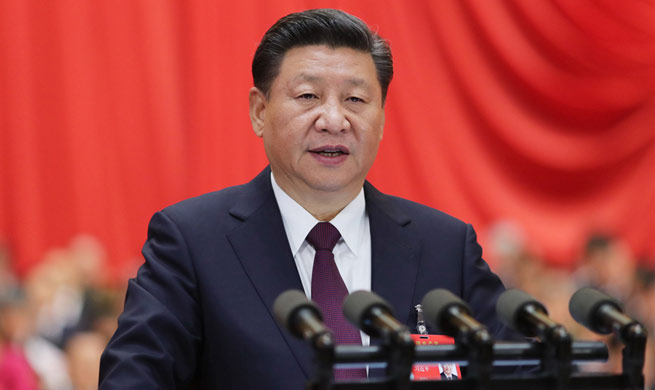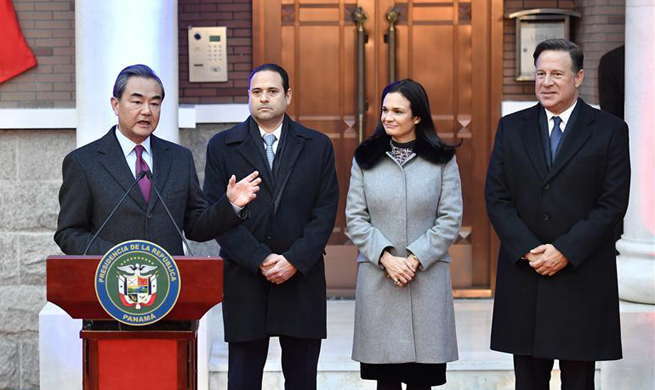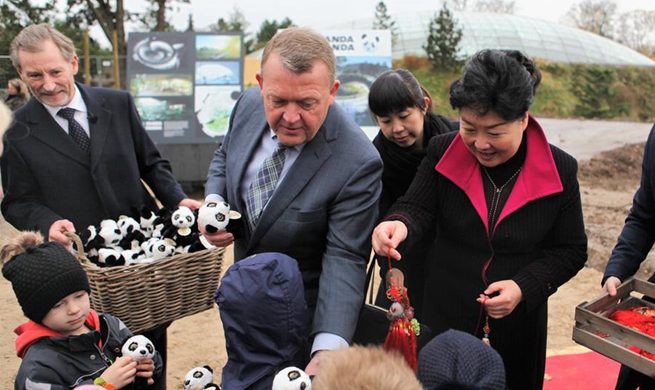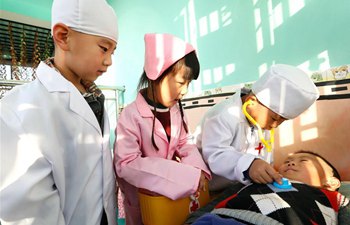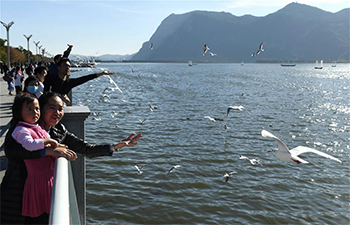GUIYANG, Nov. 17 (Xinhua) -- Li Jian, Communist Party chief of Zongling Township in Bijie, southwest China's Guizhou Province, is not only a cadre, but also a teacher occasionally giving villagers classes on how to increase their income.
"We can earn about 6,000 yuan (905 U.S. dollars) a year growing one mu (0.067 hectare) of vegetables, even more from kiwi fruit. But the annual net income from growing corn is only about 300 yuan," Li told a class of peasants in Pingjing Village.
The "New Era Institute of Peasants" was launched by the Bijie Municipal Committee of the Communist Party of China (CPC) in April and there are currently 3,896 branch institutes across the area administered by the city. Its name is believed to be a nod to the Peasant Movement Training Institute directed by Mao Zedong in 1926.
The committee requires officials at different levels to give classes for villagers at the branches to help lift them out of poverty.
The lessons are quite useful and easily understood, said Tao Xianlun, a villager from Qianxi County. Tao has increased his income substantially with the skills he learned at the institute such as planting vegetables.
With the development of the institutes, the classes are no longer limited to poverty eradication, but have been extended to many other matters of common concern such as the environment and healthcare.
According to Zhou Jiankun, secretary of the CPC Bijie Municipal Committee, cadres take one of three roles as policy instructors, technique instructors or ecological civilization instructors. They are in charge of explaining the spirit of the CPC conferences, education and healthcare policies, as well as teaching agricultural techniques.
"The reservoir in our township is a big water tank shared by hundreds of thousands of people across the county, so we must protect it not only for our own benefit but also for our descendants," said Li Minfu, party chief of Hongshui Township in Qianxi County, when explaining to residents the updated environmental protection policy from the 19th CPC National Congress.
"Using simple examples, cadres can help us peasants better understand the spirit of the 19th CPC National Congress," said Shi Kaiming, 52, a Hongshui resident. Shi said locals are willing to listen to the lessons about the congress, especially the parts directly related to their welfare.
The institutes have become a platform for communication between cadres and the public, helping to solve issues such as mistrust of officials, said Chen Daming, party chief of Nianfeng Village in Weining County.
So far, 18,000 classes have been held in institutes across Bijie, with more than two million peasants taking part.
In one of the poorest provinces in China, the city had 924,300 people living below the poverty line at the end of 2016, accounting for about one quarter of the provincial total.
The Peasant Movement Institute directed by Mao was a great example of how to mobilize, train and organize peasants against oppression, while the New Era Institute of Peasants is a new system leading peasants towards a well-off society, said Wang Jianchu, deputy principal of the Party School of the CPC Committee of Guizhou Province.






